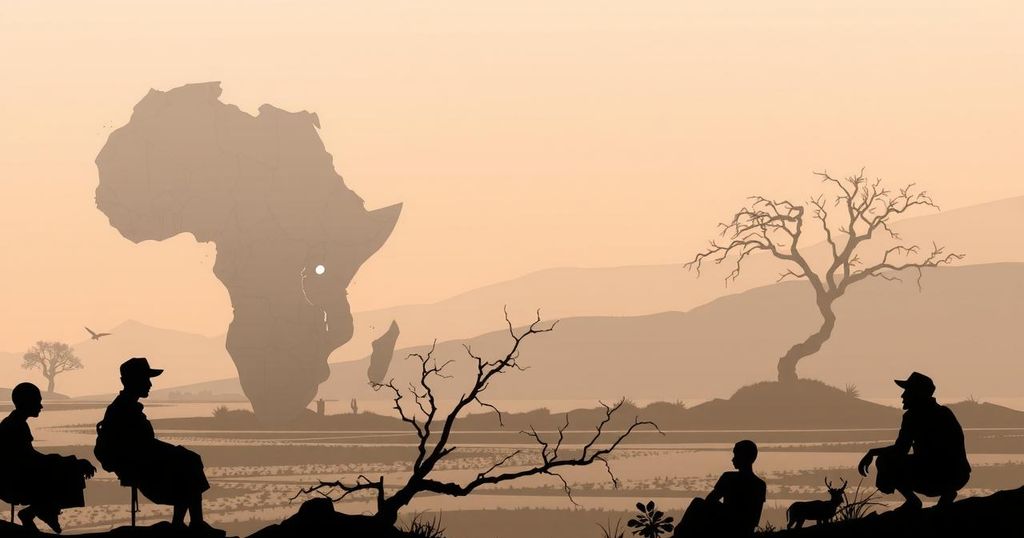Sudan and Chad are facing significant flooding crises impacting hundreds of thousands, while Lesotho is dealing with a severe drought affecting 700,000 individuals. The UN highlights urgent humanitarian needs and has allocated funds for support in these regions.
Sudan and Chad are currently facing significant humanitarian crises due to severe flooding, while Lesotho is experiencing a devastating drought, according to a report released by a United Nations official on Monday. Stephane Dujarric, the chief spokesperson for UN Secretary-General Antonio Guterres, highlighted the impact of the flooding in Sudan’s South Darfur, Red Sea, River Nile, and Northern states, where approximately half a million individuals have been affected since late June. The situation has worsened the pre-existing humanitarian challenges, particularly in El Fasher, North Darfur, which is at risk of famine. There are alarming reports of nearly 2,900 suspected cholera cases linked to the flooding, with aid organizations actively working to provide essential support to affected communities. In Chad, the floods have caused extensive damage, resulting in over 340 fatalities, affecting nearly 1.5 million citizens, and destroying more than 160,000 homes. The crisis has exacerbated food insecurity, with around 3.4 million people facing acute hunger during the lean season. The UN has escalated its financial support for response efforts in Chad. In contrast, Lesotho is grappling with the effects of a historical drought, intensified by El Niño conditions, which has severely hampered agricultural productivity and left approximately 700,000 individuals confronting hunger. The UN has also allocated funds to assist with the drought response in Lesotho, emphasizing the necessity for international support amidst these pressing challenges.
The regions of Sudan, Chad, and Lesotho are currently facing severe humanitarian crises, primarily due to extreme weather conditions. Sudan is experiencing heavy flooding that has exacerbated an already critical situation, as the country grapples with food insecurity and the threat of famine. The flooding has raised concerns about the spread of waterborne diseases, notably cholera. In Chad, the flooding has resulted in significant casualties and destruction, intensifying the food security crisis as millions confront acute hunger. In contrast, Lesotho is suffering from a drought that has drastically reduced agricultural production, leading to a declared national disaster due to escalating food insecurity. The interconnectedness of these climatic events and their severe impacts on the population highlight the urgent need for humanitarian assistance and long-term solutions to enhance resilience against such crises.
In summary, Sudan and Chad are currently dealing with the severe repercussions of flooding, which has resulted in significant loss of life, property damage, and heightened food insecurity. Lesotho, facing a contrasting crisis, is experiencing a historic drought leading to widespread hunger. The international community, particularly the United Nations and various aid organizations, are taking steps to provide critical assistance, but the ongoing challenges underscore the pressing need for continued support and intervention to address these humanitarian crises effectively.
Original Source: news.cgtn.com






